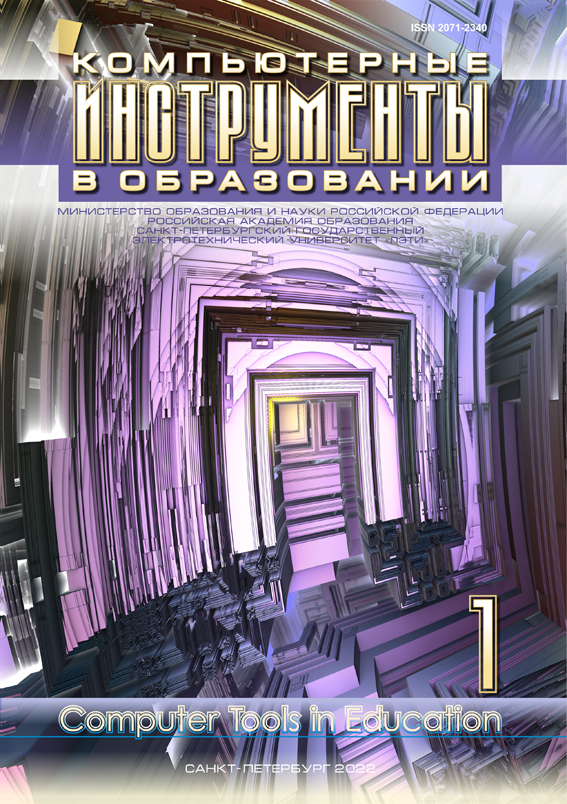Multi-agent Architecture for Federated Learning
Abstract
The concept of federated learning has become widespread in working with data, mainly due to the fact that it allows training on data directly on the nodes where they are stored. As a result, no data transfer is required. After the training is completed on each node, only the trained model is transmitted to the central server for aggregation.
Multi-agent systems behave in a similar way, because agents allow you to train machine learning models on local devices, while preserving confidential information. The ability of agents to interact with each other makes it possible to generalize (aggregate) such models and reuse them.
This article presents the architecture of multi-agent systems for federated learning. It highlights the elements that make up the agent platform and the structure of the JADE platform. Describes the lifecycle of all agents used to perform a full training cycle in the MAC\_FL environment. The configurations of agent placement for each of the proposed architectures of multi-agent systems of federated learning are analyzed and described: centralized, decentralized and hierarchical.
References
L. Sin Kit, L. Qinghua, Z. Liming, P. Hye-Young, and X. Xiwei, W. Chen, “Architectural Patterns for the Design of Federated Learning Systems,” in arXiv, Jun 2021, p. 1.
L. Sin Kit, L. Qinghua, P. Hye-Young, and Z. Liming, “FLRA: A Reference Architecture for Federated Learning Systems,” in arXiv, Jun 2021, p. 1.
Y. Gonzalez and I. Holod, “A formal model of multiagent systems for federated learning,” ˊ Software & Systems, vol. 35, no.1, pp. 37–44, 2022 (in Russian); doi: 10.15827/0236-235X.137.037-044
L. Sin Kit, L. Qinghua, W. Chen, P. Hye-Young, and Z. Liming, “A Systematic Literature Review on Federated Machine Learning: From A Software Engineering Perspective,” in arXiv, pp. 1–20, May 2021.
P. Kairouz, B. H. Mcmahan, and B. Avent, “Advances and Open Problems in Federated Learning,” in arXiv, vol. 14, no. 1, 2021. pp. 4–11.
N. Guha, A. Talwalkar, and V. Smith, “One-Shot Federated Learning,” in arXiv, Mar 2019, pp. 1–3.
H. H. Tzu-Ming, Q. Hang, and B. Matthew, “Measuring the Effects of Non-Identical Data Distribution for Federated Visual Classification,” in arXiv, Sep 2021, pp. 1–3.
J. L. Aguero, ¨ Design of ubiquitous virtual organizations using model-driven development, [PhD Thesis], Department of Information Systems and Computing, Polytechnic University of Valencia, Valencia, Spain, 2014.
FIPA, “Foundation for Intelligent Physical Agents,” in fipa.org, 03 Oct. 2001. [Online]. Available: http: //www.fipa.org/specs/fipa00023/XC00023H.html
G. Tsochev, R. Trifonov, and R. Yoshinov, “Multi-agent framework for intelligent networks,” in Proc. of 29th International Conference on Information Technologies (InfoTech-2015), 17–18 Sept 2015, Varna, Bulgaria, Sofia, 2015, pp. 109–116.
N. Cepero and M. Moreno, “Transformacion del Q-Learning para el Aprendizaje en Agentes JADE,” Lampsakos ˊ , no. 14, pp. 25–32, 2015.
F. J. Aguayo, Techniques for deployment of distributed architecture in rule-based expert systems using the multi-agent paradigm, [PhD Thesis], Department of Electrical and Systems Engineering and Automation, University of Leon, France, 2017. ˊ
Y. Gonzalez and I. Holod, “Analysis of Multiagent System for Data Analysis,” in ˊ Proc. of XXIII International Conference on Soft Computing and Measurements (SCM), Sept. 2020, St. Petersburg, Russia, St. Petersburg, Russia, 2020, pp. 218–221; doi: 10.1109/SCM50615.2020.9198765

This work is licensed under a Creative Commons Attribution 4.0 International License.







